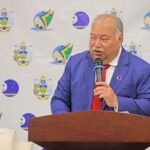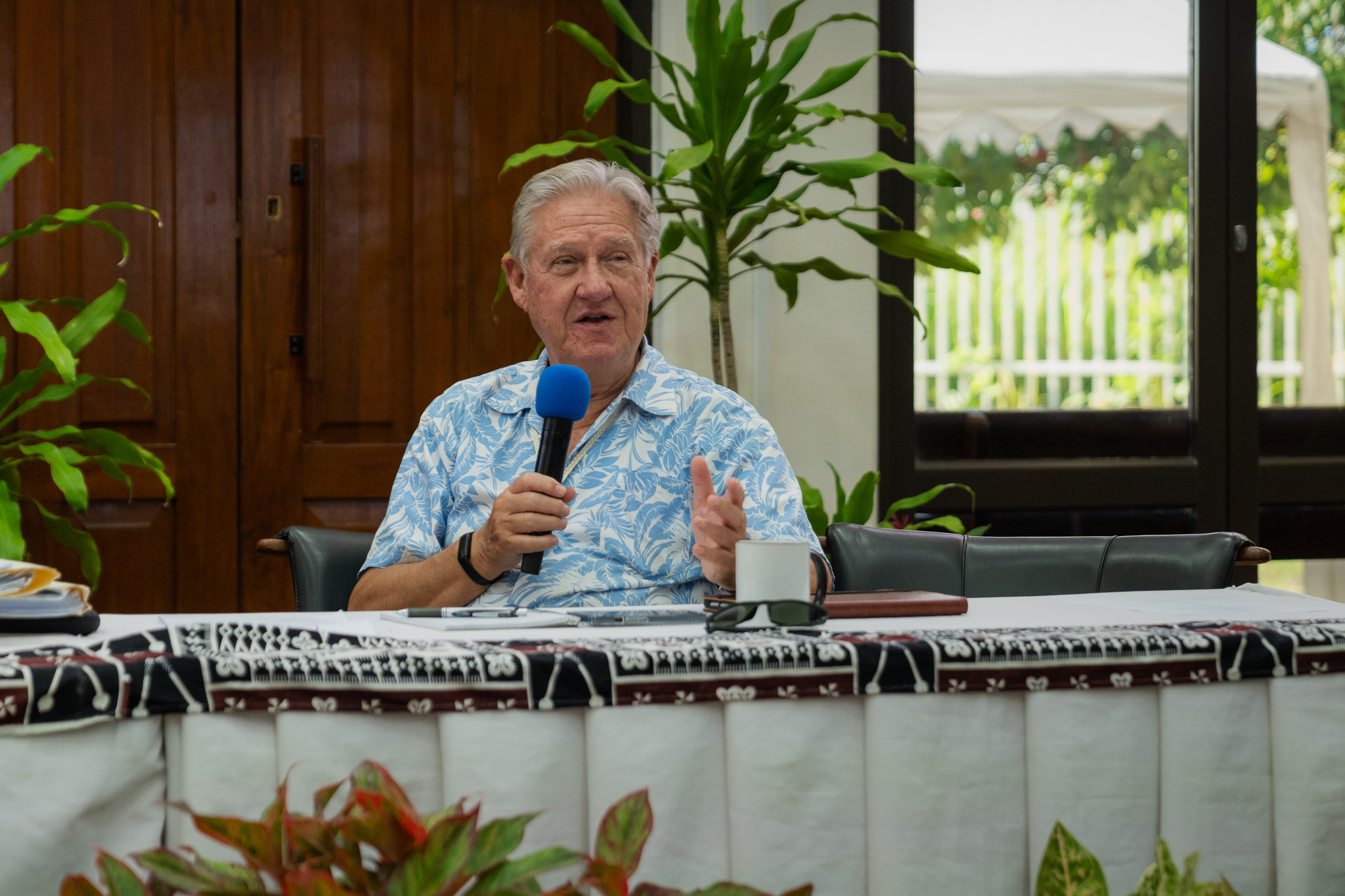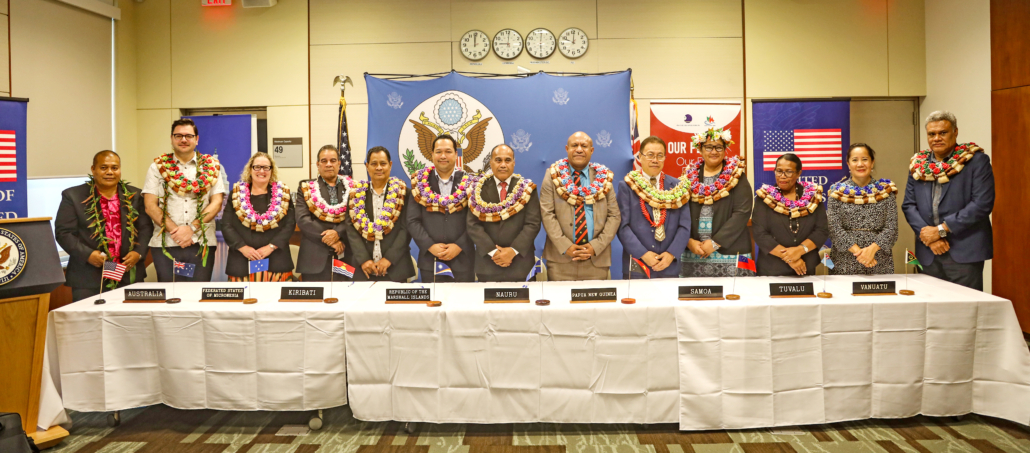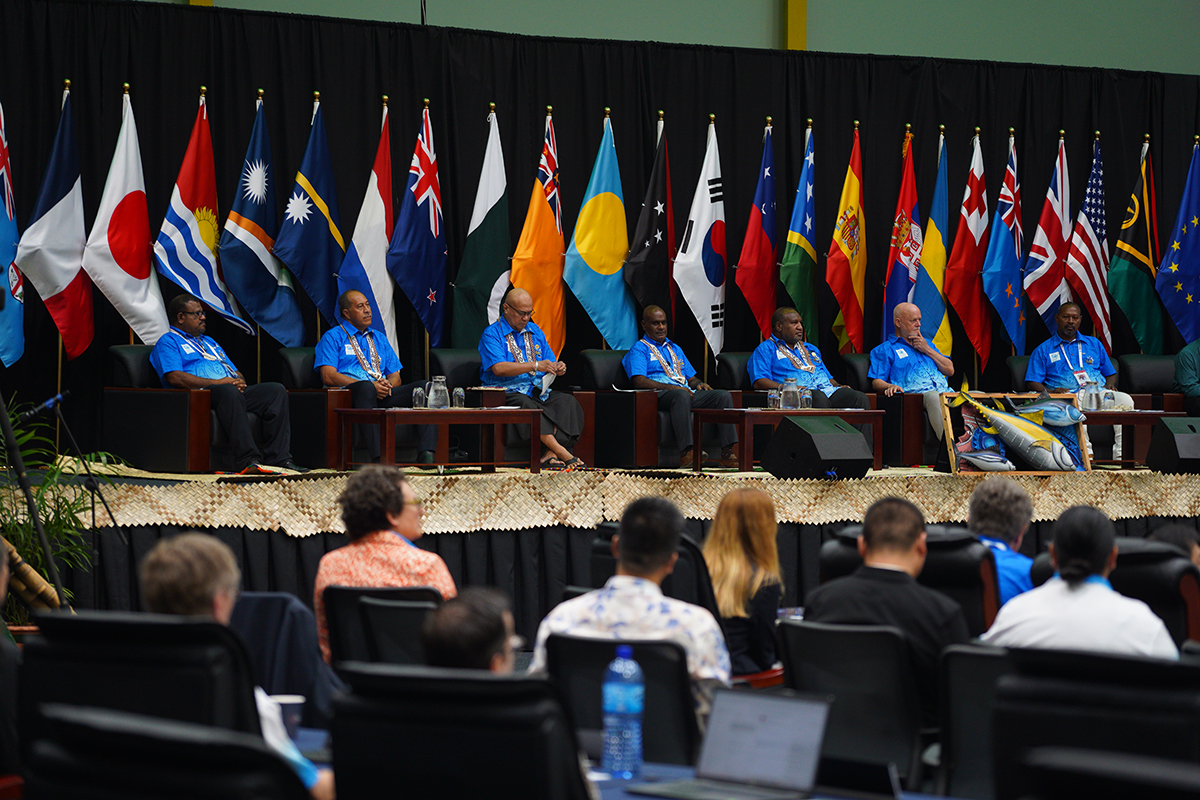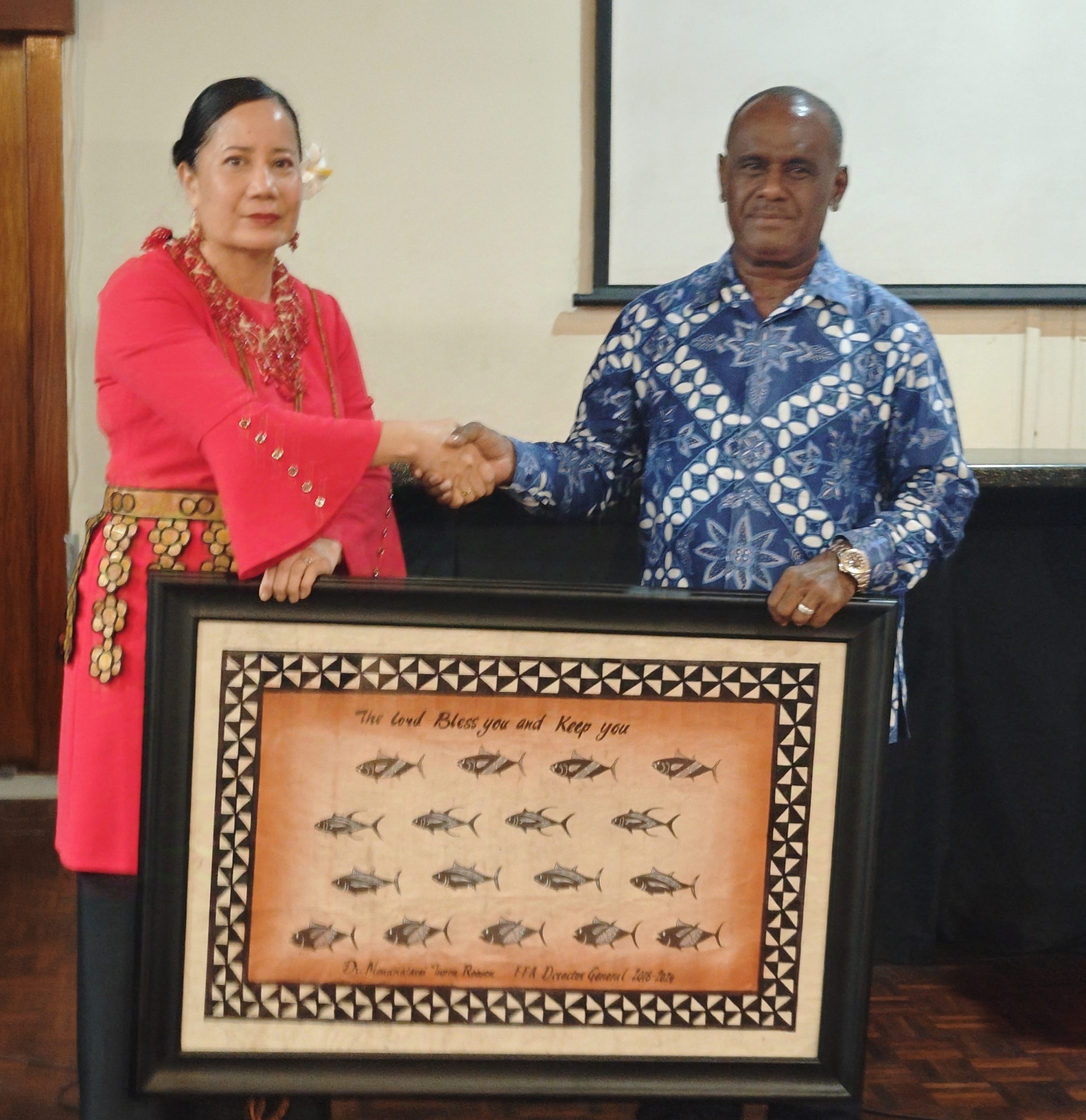Professor David Freestone from the International Law Association (ILA) Committee on Climate Change and Sea Level Rise. photo credit FFA
THE Pacific Islands Forum Fisheries Agency (FFA) is taking steps to ensure that Pacific officials in fisheries, Foreign Service and law are equipped with the highest level of negotiation skills as the region moves to elevate its involvement at relevant international negotiations that will impact the fisheries sector.
Representatives from FFA Members participated in the five-day long intensive Advanced Fisheries Negotiations Workshop that covered various topics delivered by world-renowned experts in fisheries, international law, and trade at the FFA Conference Centre in Honiara from 3 – 7 June.
Panel discussions throughout the week provided an opportunity for interactive discussions that provoked thoughts on different aspects of negotiation tactics, skills and challenges from the experts as well as providing a rich exchange of experiences for the participants.
“The messages that we took away from this Advanced Fisheries Negotiations course is that our solidarity is fundamental to successful negotiations,” said FFA Director General Dr Manu Tupou-Roosen.
“Pursuing our ambitions, our goals, and our priorities with grace. Pursuing them grounded in our Pacific culture and our faith. A strong message that in any negotiation, be Pacific proud.
“It’s been an incredible week of learning. And we couldn’t have done it alone,” the Director General said acknowledging the support from all the panellists and speakers involved.
The workshop enhanced the capacity of participants on how to navigate complex international negotiations and at the same time strengthened networks among different officials.
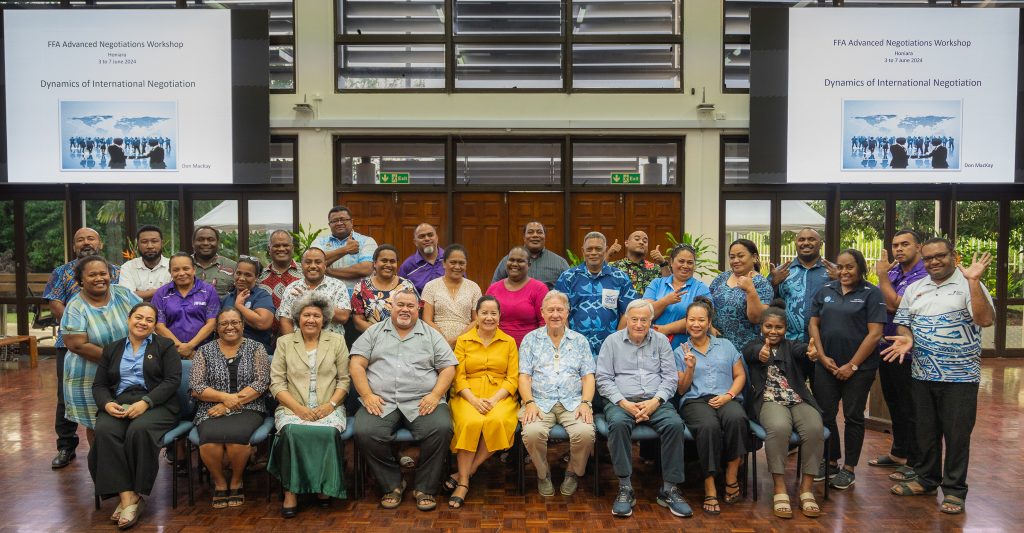
Participants gained insights into the roles and mandates of Regional Fisheries Management Organizations (RFMOs) and Regional Fisheries Bodies (RFBs), the FAO’s involvement in the BBNJ Treaty negotiations, and the dynamics of international negotiations.
They also learned about the World Trade Organisation (WTO) Agreement on Fisheries Subsidies, strategies for virtual negotiations, and experiences at the Western and Central Pacific Fisheries Commission (WCPFC). Additionally, the workshop included a keynote address by the UN DOALOS on the BBNJ Implementing Agreement and an overview of the work and role of the Office of the Pacific Ocean Commissioner (OPOC).
The workshop allowed participants to recognise the important roles they play in negotiations at the regional and international levels to safeguard and protect their economic and fisheries interests.
Emphasis to Members was also made on the need to always prepare, strategise and pursue fisheries related interests at negotiations either as individual Members or as a group such as FFA Membership.
FFA Deputy Director General, Dr Pio Manoa equally placed impetus on the need for participants to take full advantage of speakers all of whom are of high calibre and their knowledge and experiences shared that are valuable to help in their roles as confident negotiators.
Key guest speakers present at the workshop included Professor David Freestone from the International Law Association (ILA) Committee on Climate Change and Sea Level Rise, who delivered on the impacts of sea level rise on maritime entitlements and boundaries and Ambassador Don MacKay who provided insights on the dynamics of international negotiations and the fundamentals of chairing and facilitating international meetings.
The PIF’s Permanent Representative to WTO, Ambassador Mere Falemaka, shared on WTO negotiations on fisheries subsidies and its challenges. Dr Josie Tamate shared her role in national negotiations and as a Chair steering negotiation at WCPFC.
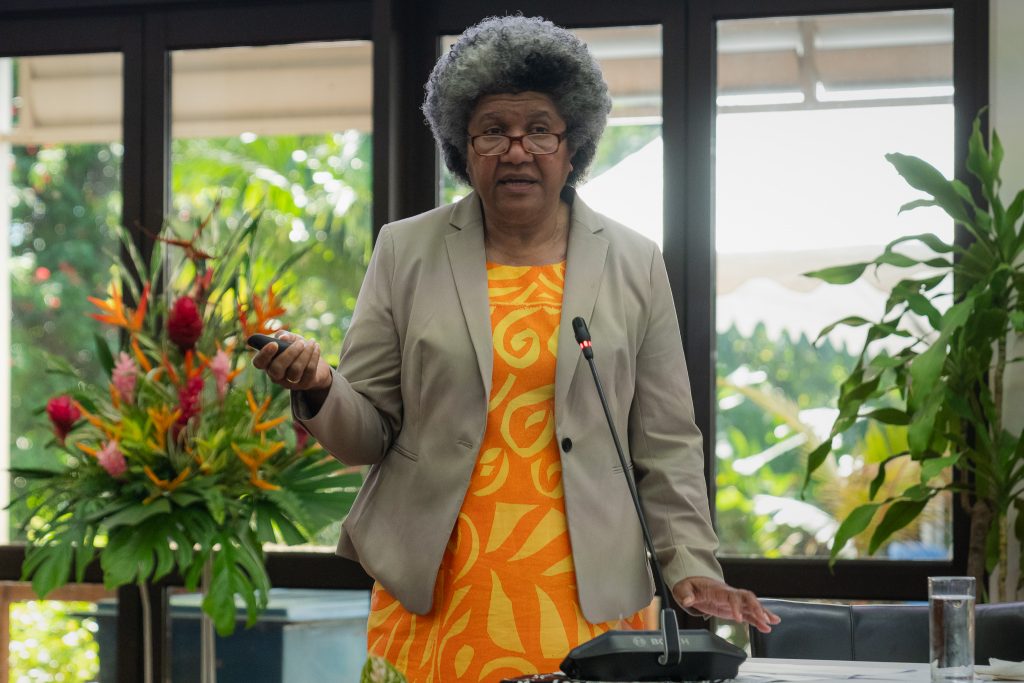
FFA also had the privilege of virtual delivery of related topics by two notable regional experts, Professor Martin Tsamenyi and the Director and Professor of Law at ANCORS, Professor Stuart Kaye.
The Advanced Fisheries Negotiations Workshop was held in honour of the memory of the late Professor William Ross Edeson, a pioneering figure in international fisheries law.
From 2010 to 2012, Professor Edeson served as the Legal Advisor at FFA. His pioneering contributions to international fisheries law at FAO and the region, including his work on fisheries legislation, development of FAO guides on IUU, and his advice on international negotiations continue to guide and influence current practices today.
FFA acknowledges the World Bank’s support towards the Advanced Fisheries Negotiations Workshop, under the FFA Pacific Islands Regional Oceanscape Program – Second Phase for Economic Resilience (PROPER). PROPER is a World Bank-funded project implemented in partnership with FFA.
Source: FFA









